Opportunities
The Design & Creative Practice ECP provides exciting, innovative and industry-engaged research opportunities.
current ↓↑
past ↓↑
Work, Care and Creativity Study: Value and visibility
Call for Participants
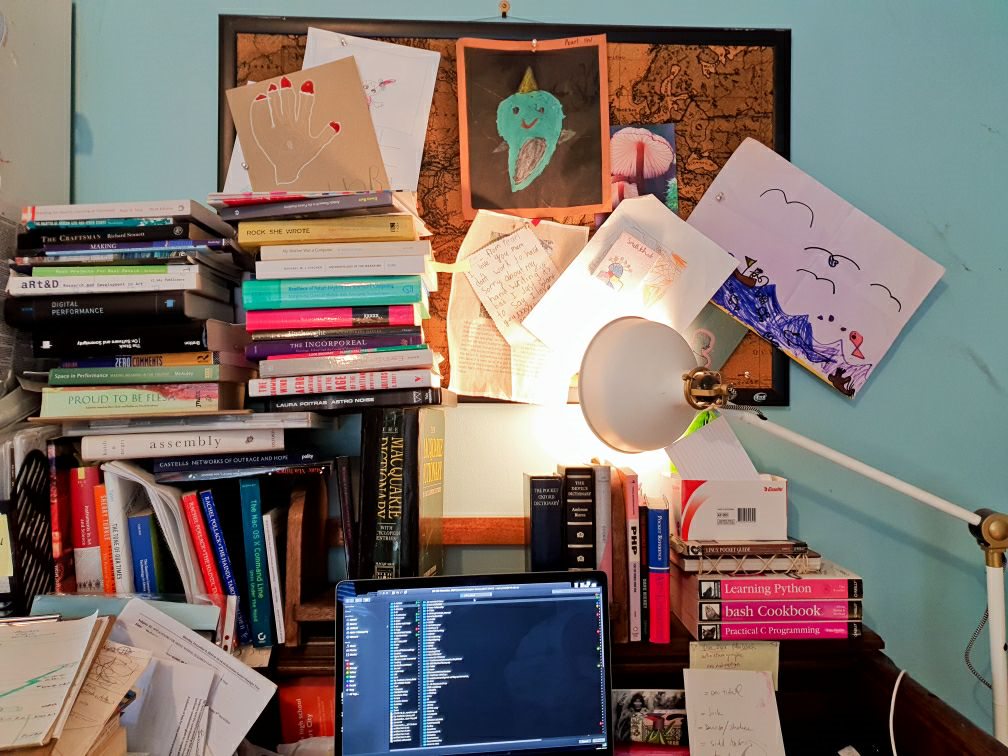
The COVID-19 pandemic has caused major disruptions to home and work life. Primary carers with school aged children are disadvantaged and struggle to get focussed working time. Caring responsibilities extend to caring for aging parents, sometimes at a distance, as well as mental health.
In response, the Design and Creative Practice ECP has formed a working group to explore the lived experiences of primary carers working from home during the COVID-19 pandemic and to broadly to capture the complexity of care responsibilities, its affects and effects on wellbeing, mental health, and career disruptions.
This project also aligns with the ECP’s A Fairer Start Initiative and builds on research conducted by the Women’s Research Network. This research emerged out of the need to better understand how creative industry and arts-based practitioners who are carers aligned with the academy are affected by the COVID-19 pandemic. It will utilise the caring resource material gathered from creative ethnographic methods in order to advocate for and provide evidence of the challenges and disruptions to life and career through the lived experience of participants.
We are asking potential participants to respond to the following prompts, you can choose one or more: writing, mapping, photography:
For further information and to submit your responses to the prompts below, please contact Gretchen Coombs, via email.
MAPPING PROMPT
Draw a map of the new ways your home is being used during the pandemic. Working from home not only brings a new level of familiarity with our domestic space but also prompts us to use it in different ways. For example, a hallway becomes a gym, a bedroom a private office, or a living room a school. Draw a map of how your home was used while working and caring from home. See an example here.
WRITING PROMPTS
Writing prompt 1: a paragraph that describes your current ‘workplace’ to someone who has never seen it before.
Writing prompt 2: a humourous set of six instructions on how to get through your day at home while balancing work, care and domestic and emotional labour.
Writing prompt 3: Employ a humorous take on a paragraph beginning with the phrase, “This week, I failed at.…”. For example:
This week I failed at keeping my voice down, at following the link provided, at taking out the kitchen garbage. I can’t help but think that everything from this period qualifies as some sort of failure: I couldn’t manage to upload the child’s half-finished schoolwork; I went to bed without feeding the cat. On Tuesday I’d done none of the tasks to prepare for that day’s meetings. I completely forgot to shower. On Wednesday I blew my top with my son (“Why must you continue to interrupt?”), on Thursday we went without lunch. Have I been striving to care, but failing to do so with anything you might call quality? Have I been striving to work but failing to do so with anything like the focus required? Perhaps there are some failures that are black and white while others dwell in more murky territory. I know I’ve failed at my creative work: I’ve not even attempted it once. (“Rule number one: show up!”). Then there are the failures in grey, a more textured series of near misses and occasional wins – there was that week I jogged three mornings in a row. Great! I’ve managed nothing since. Nothing from home is ever pure-cardio, is it? The teaching semester too, seems like a series of failures punctuated here and there with a modest pass (“You’re on mute.”). Can you cook three family meals a day, seven days a week on budget? Fail. Out walking with a friend on Sunday, she declared, “I’ve only ordered a meal delivery once during the whole of lockdown.” Clock them up, sweetheart: small victories, many battles lost. Sometimes I think of a string of women, from across the city, linked to one another by a tired series of hyphens: working-from-home-singleparent-home-schooling-during-lock-down. It’s a discrete conga with a long tail, the whole lot of us failing gloriously, simultaneously at whatever we can manage
PHOTOGRAPHY PROMPTS
Photo Prompt 1 DIY Office: Take a photograph of your workstation that includes the surrounding domestic environment and/or have someone photograph you ‘at work’ (being sure to include the wider domestic environment).
See examples below or here and here. We are interested in what is not visible through the webcam.
Photo Prompt 2 Work/Life Balance: Photograph your work/life balance. Look for juxtapositions of objects in the home that you feel represent the challenges and realities of working and caring from home. This might be a photo of a laptop nestled amongst toys, multitasking in the kitchen, or working at a local park.
Photo Prompt 3 New Routines: Photograph or make a video tour of your ‘commute’ to work. Photograph the ‘school’ or ‘childcare centre’ in your home.
FURTHER DETAILS
If you have any questions, please contact Gretchen Coombs, via email.
RMIT Human Ethics Approval: 23705
Strategic Capability Development Fund 2020
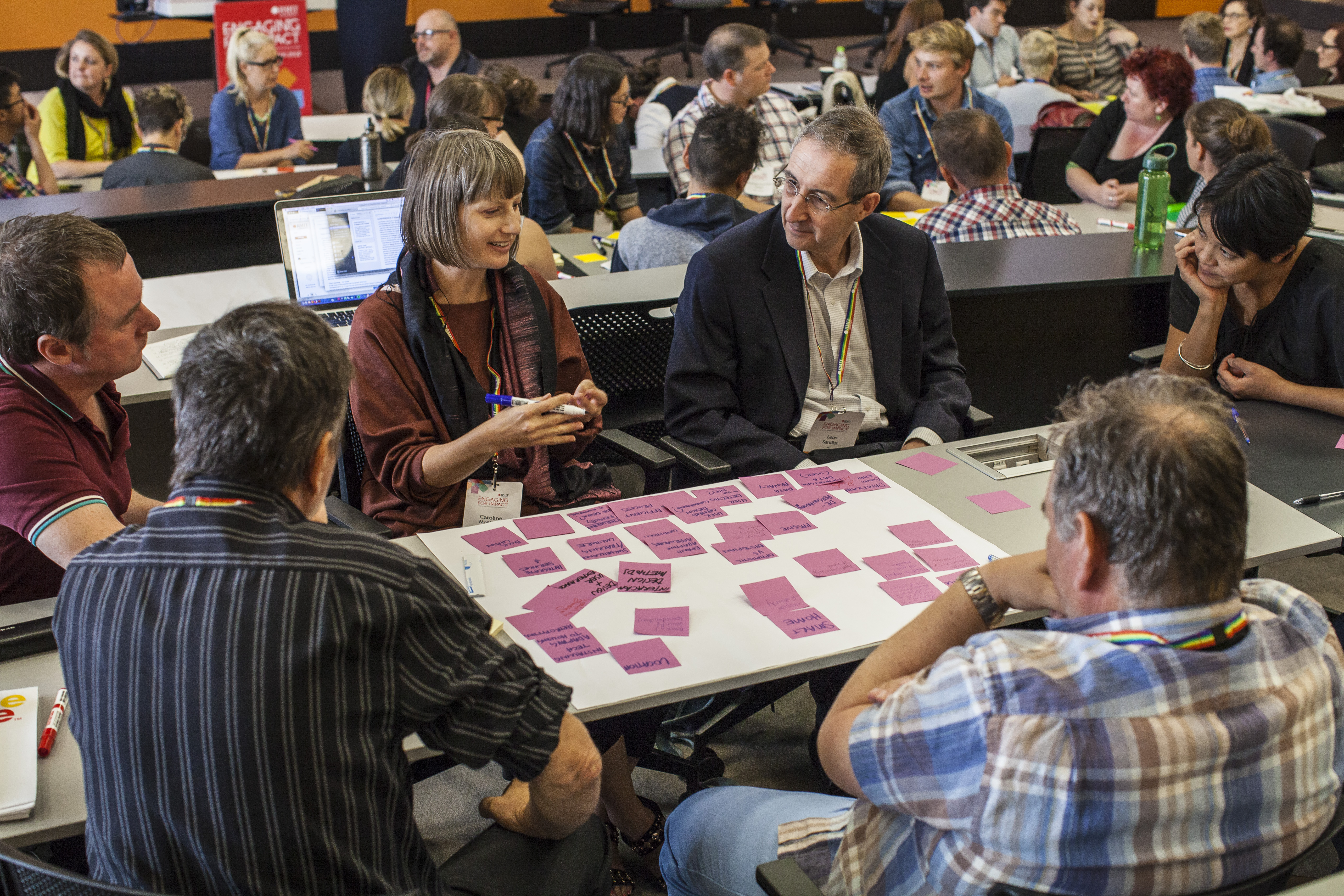
APPLICATIONS ARE NOW OPEN.
The Design and Creative Practice ECP invites expressions of interest for the 2020 Strategic Capability Development Fund (SCDF). Applications can range up to $20,000, although opportunities to fund up to $50,000 will be considered for more substantive strategic plans of work.
KEY DATES
Tuesday 10 March 2020, 5pm (AEST)
— closing date for expressions of interest
Tuesday 31 March 2020, 5pm (AEST)
— closing date for full applications (for those who have been invited to submit)
Submit Expression of interest here
PURPOSE OF FUND
- The development of research capabilities that enable researchers to become more effective in undertaking research, research engagement and research deployment in areas of demonstrated strategic opportunity. RMIT’s definition of ‘Capability’ covers People, Expertise, Infrastructure/Facilities and Networks/Connections.
- The scaling up of research capabilities that contribute to RMIT’s ability to create impact from research. Examples may include growing a collaborative network initially funded through the ECPs to take advantage of large funding opportunities.
- Establishing a new research capability program of work that will promote inter-disciplinary or cross-platform collaboration for a clear strategic purpose.
- Establishing a new strategic research capability that will be relevant to affiliates across several different disciplines/platforms.
- Establishing research capabilities that will help ECPs deploy capabilities to create impact in High Impact Potential opportunity areas, including increasing the deployment readiness of RMIT’s research and innovation capability. If a minor research component is required to validate the network’s capability/capacity, this has to be fully justified and cannot become a major component of the network’s activities.
- To enable internal translation of research capability in an identified area of RMIT research expertise: e.g. research capability to build industry roadmaps or capability to deploy research into policy outcomes.
- To assist existing successful networks to expand, consolidate, deepen, and/or reach out for impact engagement. Consolidation and expansion (non-exhaustive list) can include: support to join other larger national and international networks; expanding membership numerically and qualitatively, for example, if network was for and by ECRs, to incorporate HDR component; engage to secure industry or government funding for specific network activities. Selecting highly successful activities from establishment phase for continuation is also eligible but cannot be proposed in isolation. New activities or modification of existing activities would be required.
TWO STAGE ASSESSMENT
- There will be an initial EOI stage where cross-disciplinary topics and written endorsement by at least two ECP Directors is required (email is accepted). After EOI evaluation, selected applications will be asked to submit a full proposal.
- Proposals are selected for funding consideration at the discretion of Directors. All proposals will be considered by ECP Directors and recommended to the ADVC R&IC for approval.
ELIGIBILITY
- All RMIT researchers, including graduate researchers and academic staff, are eligible to apply (see below re. co-leading and reimbursement). Staff must remain affiliated with RMIT for the duration of the funded activity.
- To be considered for the Strategic Capability Development Fund (SCDF) proposals must have a clearly identified value proposition which is directly aligned to ECP Value creating activities. The five key domains in the ECP value chain are:
a. Researcher Engagement (increasing interdisciplinary collaborations)
b. Capability Development (investing in new skills and competencies)
c. Industry Engagement (developing new industry partnerships and opportunities)
d. Capability Deployment (building capability between different capability groups)
e. Research Translation (translating research for impact beyond academia) - Proposals should be developed across more than one ECP (cross-ECP) or demonstrate clear inter-disciplinary context; with the strategic outcomes and benefits created to apply to more than one platform.
- Proposals are only eligible for consideration with the endorsement of at least two ECP Directors.
- Proposals should clearly demonstrate a need for the funding, but also outline co-contribution from partners and/or plans for apply for funds from elsewhere (if appropriate).
- The role of ECP Directors in any proposal is in a supervising role as opposed to leading or being part of a proposal team.
- Ideally proposals should be single year in scope and funding must be expended by November in the year of award. Multi-year proposals are permitted however they must be broken down into calendar years and re-applied for each year. Multi-year proposals will only be reconsidered for further funding when the previous calendar year milestones have been successfully achieved.
FUNDING
- Funding is flexible, proposals will typically be funded across different scales of work. We anticipate projects typically up to $20K. There is the possibility of applying for funding up to $50K for more substantive strategic plans of work.
- To facilitate timely expenditure of funds outcomes will be notified by the subsequent quarter (at latest). For 2020 the expressions of interest will close at 5pm (AEST) on Tuesday 10 March.
- Full applications will be invited soon after with a deadline for that application by the 5pm (AEST) on Tuesday 31 March.
- Funding expiry — Any unspent funding relating to this activity cannot be extended or rolled over past the end of the year awarded due to University budget processes. All expenses relating to this approved activity must be processed in SAP by University shutdown (check with your School for local SAP deadlines), any costs not processed by the end of that year (regardless of the reason) will be the responsibility of the School to fund and requests for approval via ECPs will be rejected. There will be no exceptions.
SEE GUIDELINES FOR MORE DETAILS ON EXPENDITURE AND REPORTING
Vice-Chancellor's Research Fellowship 2020
Shape the world through research

APPLICATIONS HAVE NOW CLOSED.
RMIT’s Vice-Chancellor’s Research Fellowship program is internationally acclaimed for its applied, interdisciplinary research. We are proud to influence partnerships that help to commercialise research knowledge and scale up effective innovations.
This year will focus on recruiting Senior Research Fellows, Research Fellows, Postdoctoral Fellows and Indigenous Research Fellows whose experience and expertise align with one of RMIT’s eight Enabling Capability Platforms, including the Design & Creative Practice ECP.
Working within one of ECP areas, Fellows will make significant contributions to RMIT’s research priorities by developing and engaging in high-quality, high impact research projects, which address local, national, regional and global challenges.
KEY DATES
Registrations open – July 2019
Registrations close – 18 August 2019
Fellowship applications close – 25 August 2019
Research Plan Submissions – 9 – 22 September 2019
Interviews – October 2019
Reference checks – November 2019
Offers and contracts – November/December 2019
ELIGIBILITY
To be eligible for one of the Vice-Chancellor Research Fellowship, you must hold a PhD/Doctorate qualification or if applying specifically to the Postdoctoral Research Fellowship, be awarded your PhD prior to accepting an offer of employment.
Fellowships are not available to RMIT employees with current ongoing academic positions.
APPLY
To start your application submit a ‘Register Your Interest’ via this link. Eligible applicants will then be invited to complete a full application.
The ‘Register Your Interest’ stage closes on Sunday 18 August 2019 with the application assessment closing a week later, therefore we strongly encourage you to register your interest ASAP.
For further information on the application process, please visit Vice-Chancellor’s Research Fellowships.
PhD Scholarship in Designing for Ageing Well

We are looking for talented interdisciplinary and collaborative students to undertake a PhD focusing on designing for Ageing Well social futures.
Aged societies are the future.
To design for these complex futures, we need interdisciplinary approaches that coalesce creatives, social scientists and biomed. RMIT offers unique social and creative solutions to ageing well with its expertise in ethnographic and thick data approaches, human-centred design; design for care and social impact; sociology of health; public health; action research and playful technology.
Eligibility
To be considered for the PhD Scholarship, applicants must hold or be currently completing:
- Master by research
- Master by coursework with a significant research component graded as high distinction, or equivalent
- Honours degree achieving first class honours
- 4 year bachelor degree achieving a GPA of 4 or equivalent (80% or above).
If you do not hold one of the above qualifications, you will only be considered for scholarship if you have previous publications or significant research experience. All other applicants will be considered ineligible.
Value and duration
$30,900 per year for three years with a possible six-month extension.
Number of scholarships available
One
How to apply
Before applying for the Scholarship, contact the Design & Creative Practice ECP and establish if your research is aligned with RMIT’s research focus and strengths. Contact details are listed below.
RMIT University’s research strategy
All applicants should email the following to Distinguished Professor Larissa Hjorth:
- a cover letter, this should detail alignment with research areas at RMIT,
- your Curriculum Vitae, and
- a two-page research proposal.
The research proposal is a key part of the application process where applicants must demonstrate the value of their research and their suitability for scholarship selection.
Your proposal should be divided under the following headings:
- Title and topic
- Research questions you plan to investigate in the context of existing research/literature in the area
- Significance and impact of the research
- Methodology/research tasks required to undertake the research
Contact
If you have any questions, please contact Distinguished Professor Larissa Hjorth, Design & Creative Practice ECP Director, via email.
ECP Opportunity Fund: Translation and Impact (EOF – TI)
Creates and captures value from RMIT’s research
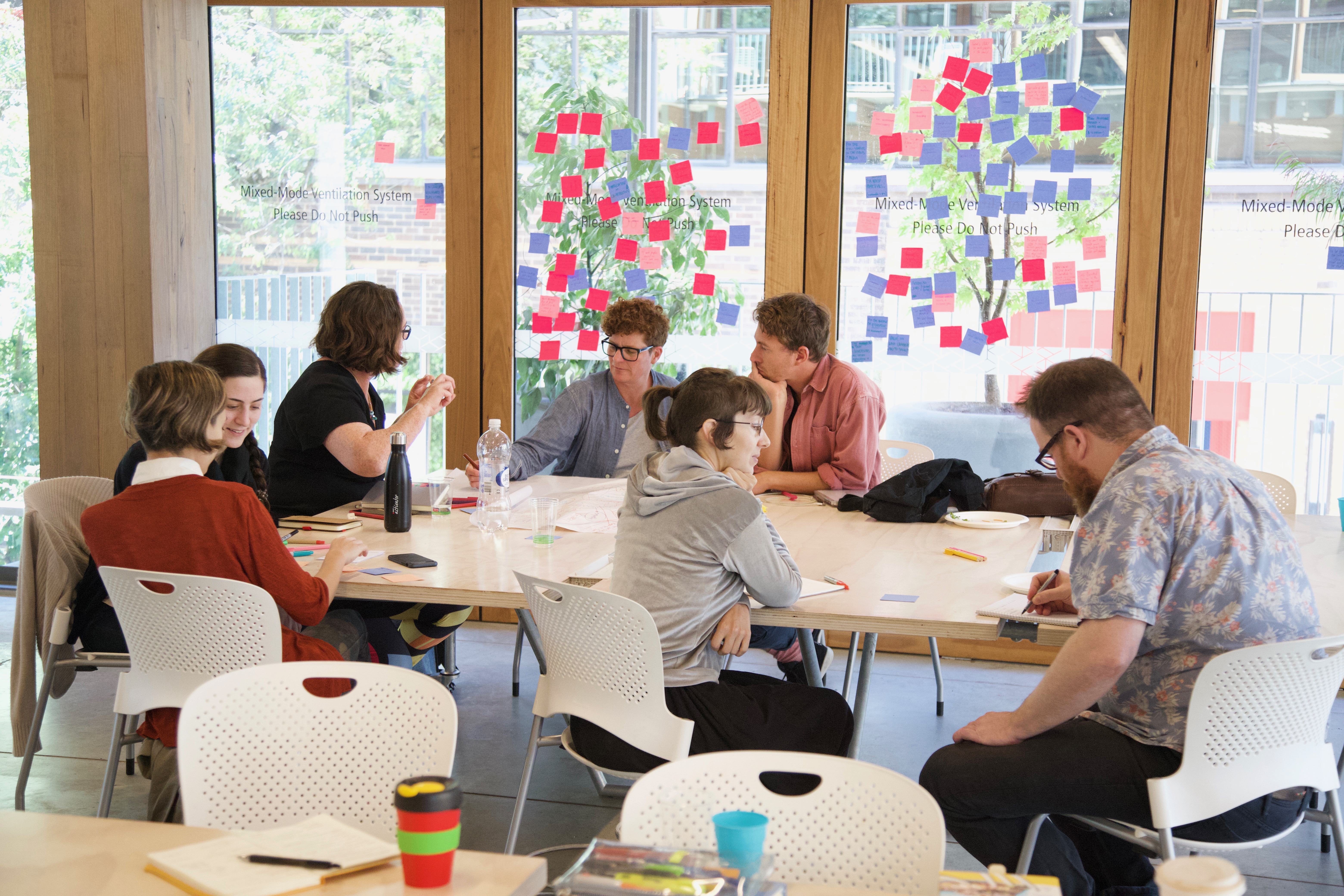
APPLICATIONS HAVE NOW CLOSED
The ECP Opportunity Fund: Translation and Impact (EOF – TI) creates and captures value from RMIT’s research.
Successful applicants will receive up to $125,000, which can be funded for projects lasting up to 12 months in length.
AWARD OVERVIEW
The purpose of the EOF — TI is to enhance the impact of RMIT research, in alignment with ECP priorities. The scheme is to support measurable and achievable outcomes across the funding period in one or more of the following activities:
- Catalysing research translation to create impact sooner and more effectively.
- Broadening the reach and scale of impact that would have otherwise been difficult to achieve without this targeted investment.
-
Strengthening the global competitiveness of nascent research that has high impact potential in well identified target markets.
KEY DATES
EOI open – until 15 July 2019
EOI Review Panel – 24 July 2019
Full proposal workshop – 31 July 2019 (mandatory)
Full proposal support – until 2 September 2019 (optional)
Pitch to Panel – w/c 12 September 2019
Project activation – from 13 September 2019 onward
ELIGIBILITY
To submit an Expression of Interest, your project team may include the:
— Project Leader: the nominated ECP affiliate responsible for conception, conduct and delivery of the Project.
— Project Member: an ECP Affiliate or Collaborator with a clearly defined role in contributing to the outcomes of the project.
— Collaborating Organisation (CO): industry entities, small medium or large industry bodies, for profit firms, not for profit organisations, Government Departments or Agencies as participants in a Project
— a project member external to RMIT University (including other institutions) who will contribute substantially to value creation and the achievement of project milestones.
Download the detailed 2019 guidelines here.
APPLY
To start your application head to the RMIT Researcher Portal here.
PhD Scholarship in Care-full Design in Humanising Technologies
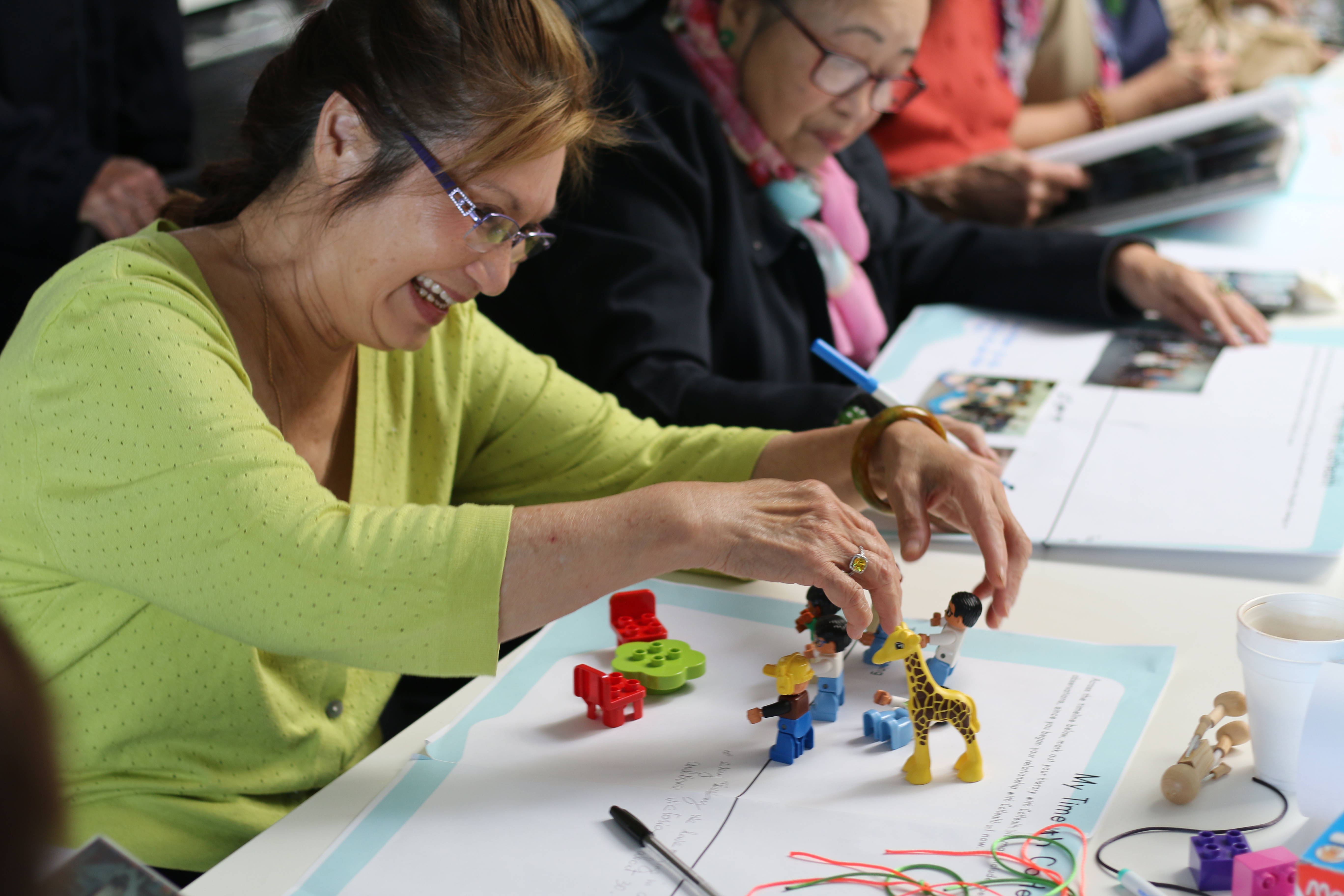
APPLICATIONS FOR THIS SCHOLARSHIP CLOSE 28 FEBRUARY 2020.
The Design & Creative Practice research platform is looking for talented interdisciplinary and collaborative students to undertake a PhD focusing on care-full design in humanising technologies.
Digital technologies are increasingly embedded in everyday lives of people living in urban environments. Active discussions and design of robots and artificial intelligence question how they are perceived to care and be cared for those living in cities. As importantly, they raise questions around particular anthropocentric design choices, one of which is how “cuteness” is used to make them feel more approachable, acceptable, or even loveable. In this project, we study – i.e. explore, question, problematise, and experiment, among others – the current cute-scape of smart and robotic technologies designed for “caring” in different cultural setting and speculate its possible-tomorrows.
We seek research candidates who are passionate about exploring transformational possibilities of care-full design through transdisciplinary work in/across different fields of design – including but not limited to interaction/experience/visual/multisensory/service. Experience and/or interest in co-creative methods and Asian contexts is highly valued.
Eligibility
To be considered for the PhD Scholarship, applicants must hold or be currently completing:
- Master by research
- Master by coursework with a significant research component graded as high distinction, or equivalent
- Honours degree achieving first class honours
- 4 year bachelor degree achieving a GPA of 4 or equivalent (80% or above).
If you do not hold one of the above qualifications, you will only be considered for scholarship if you have previous publications or significant research experience. All other applicants will be considered ineligible.
Close date
Applications will close 28 February 2020 for a midyear intake.
How to apply
Before applying for the Scholarship, contact the Design & Creative Practice ECP and establish if your research is aligned with RMIT’s research focus and strengths. Contact details are listed below.
RMIT University’s research strategy
All applicants should email the following to Dr Jaz Hee-jeong Choi and Distinguished Professor Larissa Hjorth:
- a cover letter, this should detail alignment with research areas at RMIT,
- your Curriculum Vitae, and
- a two-page research proposal.
The research proposal is a key part of the application process where applicants must demonstrate the value of their research and their suitability for scholarship selection.
Your proposal should be divided under the following headings:
- Title and topic
- Research questions you plan to investigate in the context of existing research/literature in the area
- Significance and impact of the research
- Methodology/research tasks required to undertake the research
Terms and conditions
See the research scholarship terms and conditions for further information.
Contact
If you have any questions, please contact Dr Jaz Hee-jeong Choi, via email or Distinguished Professor Larissa Hjorth, Design & Creative Practice ECP Director, via email.
2019 ECP Capability Development Fund
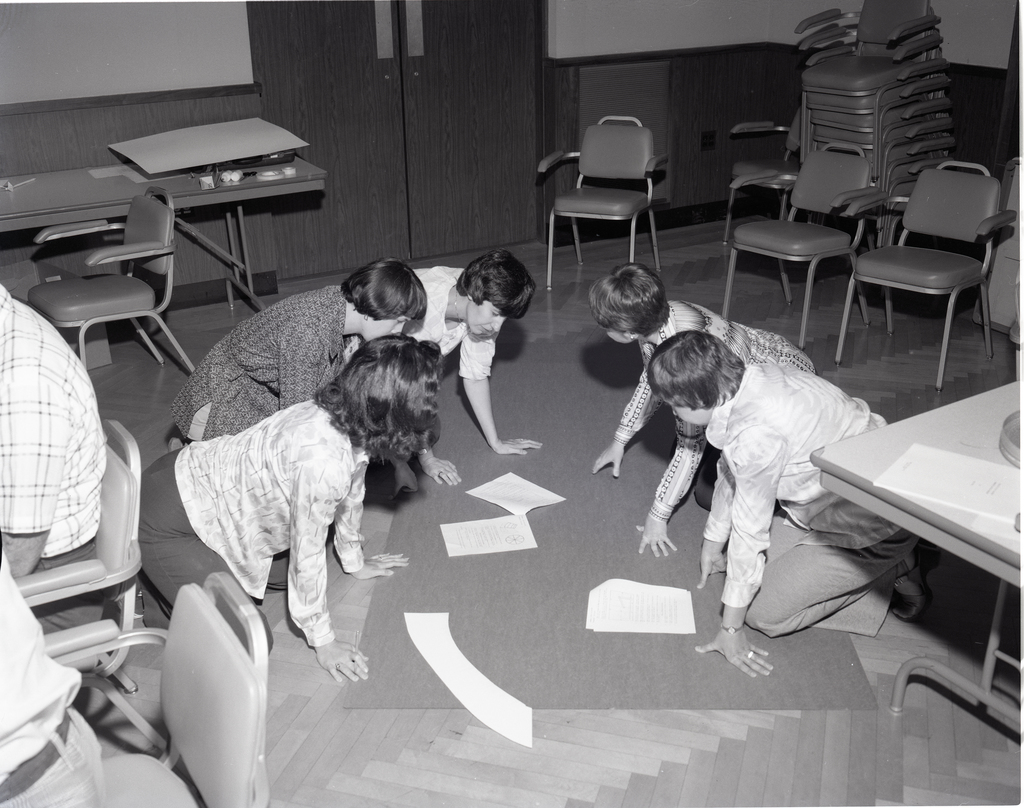
APPLICATIONS ARE NOW OPEN!
We are pleased to announce the opening of the Design and Creative Practice ECP 2019 Capability Development Fund (CDF) with funding up to $10,000. If you are interested in applying please refer to the Summary document for full application details.
WHO CAN APPLY?
All RMIT researchers, including graduate researchers and academic staff, are eligible to apply.
ALIGNMENT
As part of completing the application form, you’ll be asked to briefly describe the top 3 ways your activity helps to create value within the ECP Value Chain and has clear alignment to the Platform priorities.
Further information on the Platform Priorities can be found here.
HOW MUCH?
Applications in the range of $5,000 – 10,000 are expected, although other opportunities will be considered if the value to one (or more) ECPs is demonstrated.
KEY DATES
Friday 1 March 2019 (COB)
— send your EOI (up to one page) to dcp.ecp@rmit.edu.au with the subject line Design and Creative Practice ECP CDF 2019. The ECP Director will respond to your EOI.
Friday 15 March 2019 (COB)
— With approval from the ECP Director, complete the online application form (found in the Summary document).
Monday 1 April 2019 (COB)
— Applicants will be informed of outcomes.
